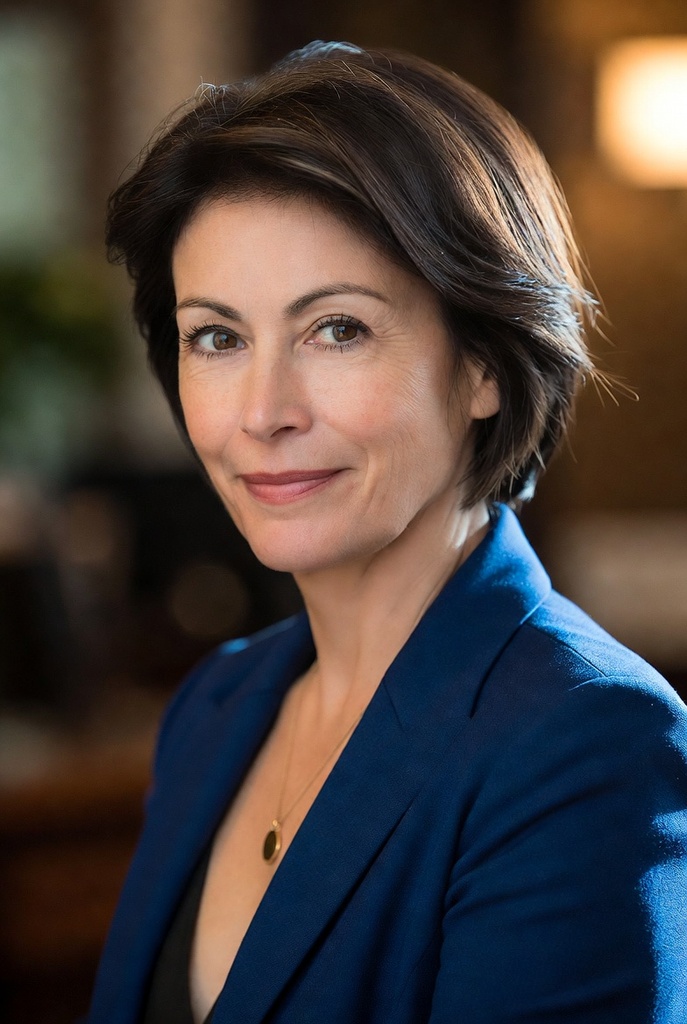Let’s think backwards from the intended outcome. “In the end, the promised foreign and security policy could become a seamless whole—ideally, better prepared for new crises,” as Tagesschau aspires. Now, Germany is finally set to get a National Leadership Council for security matters. After all, a joint committee stands for a united message. Maximum efficiency is assured when the crucial experts sit at one table and work together on solutions. It sounds good—but only to a limited extent.
Committees are not the source of unity and strategic clarity. Where many different interests collide, debates do arise that may lead to a few good outcomes. However, whether this actually produces real unity is far from certain.
Secondly, a steering committee cannot simply be equated with the best possible coordination of crisis responders. Even if a wise decision is made that considers all aspects, it still has to be implemented by the bureaucracy. That’s simple with singular decisions, like those about arms exports. A decision is made, and a handful of chosen people put it into effect. One phone call suffices, and certain weapons simply stop being shipped to certain regions because the company producing them has been told not to send them out.
But what happens if a large-scale national disaster needs to be managed, with action required all over the place? A major flood disaster or a comprehensive Russian attack on the Federal Republic of Germany? Then, decisions quickly branch out again. A central committee can indeed say, “Let’s go,” but that doesn’t free up hospital capacity, dispatch ambulances, or tell drivers which roads are navigable and which are not. None of these committee members provide ammunition to fighting units. None of these high-ranking officials set up field beds for refugees on the ground or tend to the wounds of the injured. All of that has to happen locally. And a central committee is still one step further removed from the scene than speaking directly with helpers in the affected areas. The effectiveness of any new council is decided by the approach how it closes the gap between a strategic decision and the materialized effects on the ground. A committee that levels up itself above still existing ways to decide is meaningless. A committee that bridges and fills gaps in the administrative procedures well below of the national decision level would be needed, indeed.
National Security Councils – an overview
But why not looking around and gaining expertise from those nations which are still having such committees – and for decades now. National Security Councils (NSCs) in all other countries are specialized government bodies established in many countries around the world to advise the head of state or government on matters of national security, foreign policy, and crisis management. These councils serve as platforms where senior officials from various government sectors coordinate policies that protect and promote national interests in the face of security threats. Notably, the United States established its NSC in 1947, setting a precedent followed by numerous democracies and autocratic regimes alike, such as Germany, Russia, China, India, and South Africa, each tailoring the body to their specific political and security environments.
The primary purpose of an NSC is to provide a structured forum where the executive leader is advised and supported in national security and foreign policy decision-making. The NSC facilitates coordination among military, intelligence, diplomatic, economic, and other relevant agencies to create cohesive strategies and responses to threats.
Organizationally, NSCs vary but generally include high-ranking officials such as the president or prime minister (who usually chairs the council), defense and foreign affairs ministers, intelligence chiefs, and other key advisors. For example, the U.S. NSC comprises statutory members including the Vice President, Secretaries of State, Defense, Treasury, Energy, Attorney General, Homeland Security, and other senior officials alongside military and intelligence advisors. These members contribute expertise, coordinate inter-agency policies, and ensure comprehensive security governance.
Decision-making authority of NSCs differs globally. In some countries like the U.S., the NSC primarily serves an advisory and coordinating role for the president, who holds final decision authority. In contrast, other countries grant their NSCs binding powers on certain security-related issues, such as Germany’s Federal Security Council, which currently has limited authority but is contemplating expanded decision-making powers beyond arms exports.
Typical members of a NSC are the Executive leadership (President or Prime Minister), Defense and military leadership, Foreign affairs and diplomatic corps, Intelligence agencies, Economic and energy sectors, Law enforcement and homeland security, Occasionally, specialized advisors in science, technology, and economic policy. The inclusion of broad and diverse stakeholders facilitates a holistic approach to security challenges.
For instance, the U.S. NSC invites the National Security Advisor to facilitate coordination and often includes the Chief of Staff, Counsel to the President, and heads of intelligence agencies as advisory participants.
National Security Councils offer significant advantages in managing complex security environments by promoting centralized coordination and timely decision-making. Their effectiveness lies in their ability to synchronize inter-agency efforts and present the head of state with well-vetted strategic options. The U.S. NSC, credited with coordinating major crises and wars, shows how such institutions can facilitate both tactical crisis management and strategic policy formulation.
However, challenges arise, including potential bureaucratic turf wars, politicization, and secrecy that can hinder transparency and accountability. Effectiveness depends heavily on leadership that balances assertive coordination with inclusive dialogue.
In countries lacking formal NSCs, national security decisions are often decentralized or managed through ad hoc committees or cabinet discussions. While some democracies and autocracies manage effectively without an NSC, they may face slower decision cycles, less inter-agency synergy, and increased risks of policy fragmentation.
Democracies with NSCs benefit from a structured forum that integrates diverse policy areas, including economic and environmental security alongside traditional defense concerns. Autocratic regimes may use NSCs to consolidate decision-making power, potentially limiting oversight but accelerating authoritative responses to threats.
Thus, National Security Councils represent a valuable institutional tool for managing national security in modern states. They are not a panacea but, when well-organized with clear roles, inclusive membership, and balanced authority, they enhance a country’s ability to respond effectively to evolving security threats. Countries without such bodies should consider the benefits of formalized security coordination while tailoring structures to their governance style and security context.
National Security Council – The German Solution
Tellingly, the United States established a National Security Council when the Second World War was over and all decisive battles had been fought. It is worth considering that since then, the U.S. has never truly and definitively won a full-scale war.
A national security council can indeed make sense—especially in a coalition government—to bring together the different forces, opinions, and positions and reach a balance. However, it would be a mistake to automatically attribute higher efficiency to such a body. On the ground, little will happen if there are not enough personnel, resources, and equipment available to deal with emergencies. The coordination of aid workers as well as military forces is inseparably linked to leadership on site by the respective commanders. A national committee somewhere in the government quarter of Berlin can do little in that regard.
Another point worth reflecting on is the centralization of decision-making authority in the Federal Chancellery. This has been a recurring concern in recent years, and the argument has not been refuted. Diverging viewpoints, different perspectives, and even disputes over competencies may today be seen as signs of inefficiency—but in a diverse society, they are also a strength. In complex security situations, this approach might even be better, as it allows different decisions and courses of action to be set against one another, weighed, and related.
The National Security Council in Germany will come—that much is certain. Whether it will meet expectations and lead to efficient and decisive government action, however, remains to be seen.


